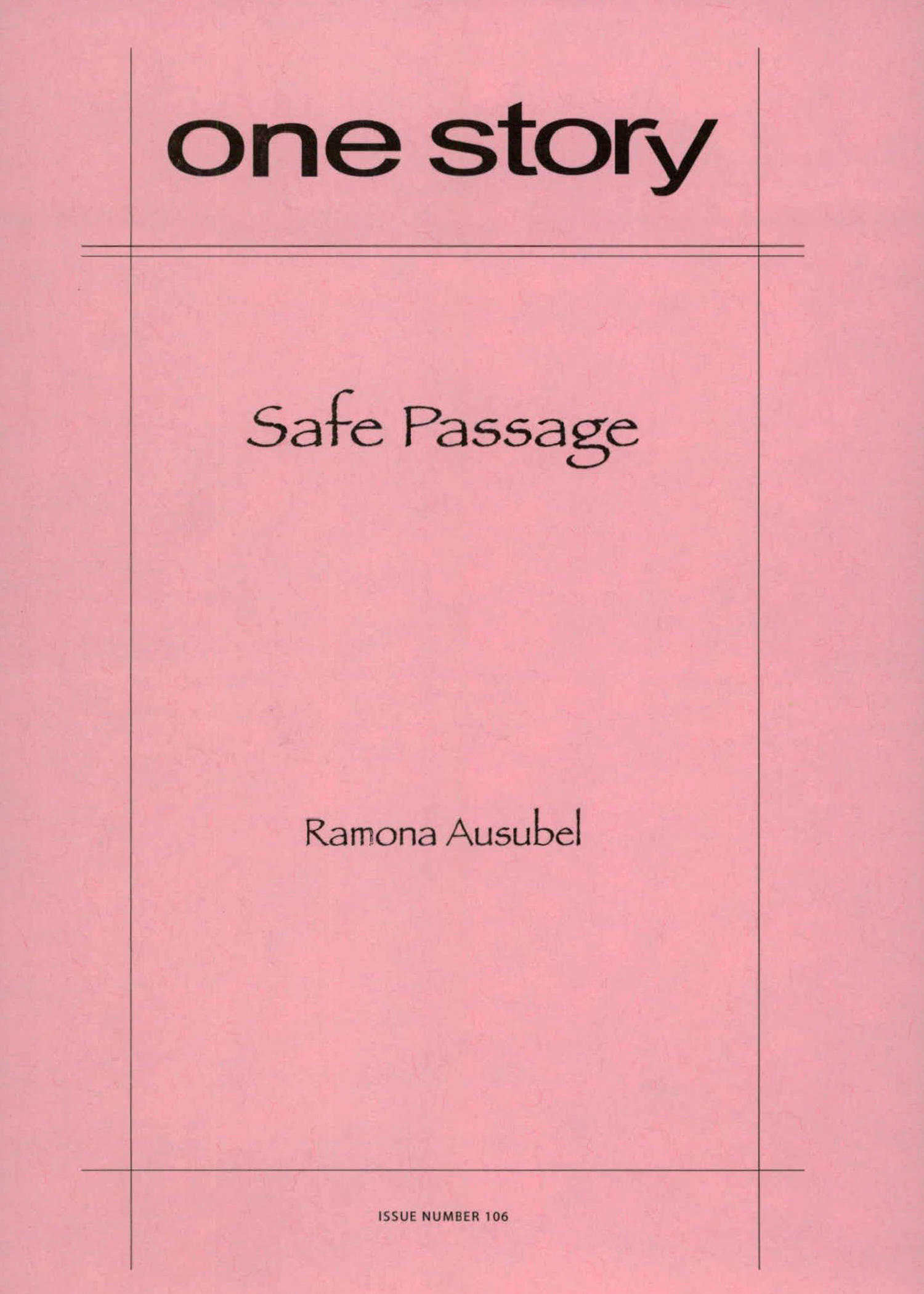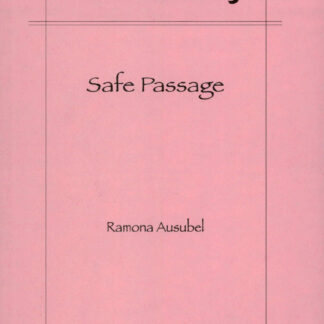
Safe Passage
$2.50
21 in stock
Excerpt
The grandmothers—dozens of them—find themselves at sea. They do not know how they got there. It seems to be afternoon, the glare from the sun keeps them squinting. They wander carefully, canes and orthodics, across the slippery metal deck of the ship, not built for human passage but for cargo. Huge shipping crates are stacked at bow and stern. The grandmothers do not know what it means. Are we dead? they ask each other. Are we dying? Every part of the ship is metal, great sheets and hand-sized rivets. Cranes and transverses and bulkheads and longitudinals—all metal. All painted white and now splayed with the grey stars of gull droppings.
Among the many hunched backs and stockinged legs, there is a woman named Alice who finds the nicest bench and sits down on it. The bench looks out at the horizon, that line drawn by the eye to make an ending where there is not one. Alice is a lover of views, of great expanses and she is happy now as she has always been, to look out.
Ramona Ausubel
Ramona Ausubel is from Santa Fe, New Mexico. She is a graduate of the Programs in Writing at the University of California, Irvine and serves as fiction editor for Faultline Journal of Art & Literature. She has lived and traveled in California, Massachusetts, Southeast Asia, Europe and Central America . She is at work on a collection of short stories and a novel. This is her first published story.
Q&A by Hannah Tinti
- HT: Where did the idea for this story come from?
- RA: I have lived near two big ports—Long Beach and Oakland—for the last several years. There’s just something about all those goods, all that stuff. They’re traveling cities of stuff, and I had them floating around in my head. Then, when my grandmother was sick (this is the single story from the collection I’m finishing that has any basis in my real life) I was on the plane to Chicago to visit her and I started writing the story. I can’t exactly explain the moment it was born but I know that when I put the first sentence down ”The grandmothers found themselves at sea...” I thought, yes they did, that’s right and went from there.
- HT: What was the most challenging aspect of writing this story?
- RA: That the character was real to me. Normally I get to be the boss of everyone in a story and I can beat them up or save them in equal measure, but here I felt like her rightness was more important than mine. She stayed kind of still while I built the whole world around her.
- HT: Why did you choose a freighter for the grandmothers’ travels? It’s such an intriguing image, but also strange and unexpected. Can you talk about what drove you to pick such an environment for these displaced women?
- RA: Death starts to look very technical these days. We don’t wander off into the desert and curl up in the shade—we go into hospital rooms full of technology and instruments and machines. There was something about that ship, such a man-made thing, floating on the enormous, powerful ocean that felt to me like aging or dying in our world. I also liked the juxtaposition of being totally lost and in such good company.
- HT: Have you ever traveled by freighter before?
- RA: No! I have been on lots of other kinds of boats. Someday I’d like to, although I hope mine is not lost at sea.
- HT: The idea of a communal memory for all the passengers of the ship is very interesting. Why do you think this was so important to the women? Did it matter what anyone was saying?
- RA: No, it didn’t really matter who was who by the end. By that time, what mattered was that they were, they existed—however unexplainable their current circumstances and however unexplainable their lives up until then—they existed and that fact became a substance, an actual material thing. The blue dress was whichever blue dress they needed it to be. Their lives were clay in their hands.
- HT: Santa Claus dolls and toilet seats are interesting cargo, along with yellow roses. How did you decide what the grandmothers would find in the crates?
- RA: I have no idea! I’m sure someone could tell me very strange things about my psyche based on that list.
- HT: For a story about death, it ends on a rather triumphant image. Why did you choose to end the story this way? And do you think that Alice had to leave the boat to get there?
- RA: I do think Alice had to leave the boat to get there. She needed to change elements, she needed to go to a place where some other entity was holding her up, she needed to be relieved of gravity—it’s hard to do a flip on land at age 86!—and I think she needed to be alone where her life was completely hers. No one else’s say mattered anymore, she could love everyone she loved. She had every moment of her life from being eight to being eighty all at once.
- HT: How long did it take you to complete this story?
- RA: It took about a year and a half. I left it and came back a number of times, of course.
- HT: What is the best bit of advice about writing you have ever received?
- RA: Write. It’s so absurdly basic and so absurdly true and it keeps the door open so that the next day you can go inside again. I also have gone into my wonderful teacher Ron Carlson’s office many times and been told things like, “This part here needs...” he scrunches up his forehead and thinks, “nine words. Nine words or eleven words. It’ll cost you an hour.” It’s not that it actually needs nine words, or that I have his promise that I’ll be done by lunchtime, but it comforts me to think about writing like building something. Yup, we’ve got all these parts to hammer together and balance and sand, and then there’s decorating to think about, but it will happen. Just get back into the shop.
- HT: What are you working on now?
- RA: I’m finishing a collection of stories and a novel about a village where everyone decides to start the world over.
